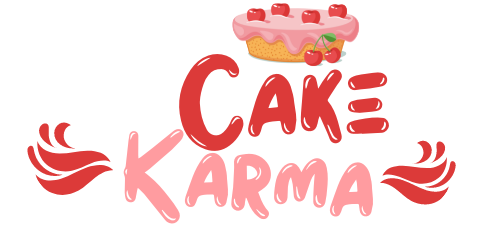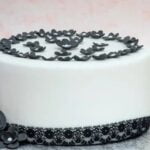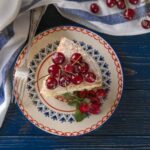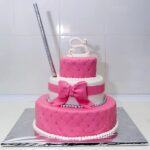Cake decorating is an art form that has been perfected over centuries, evolving from traditional techniques to embrace modern innovations. One such innovation that has revolutionized the world of cake decoration is the use of printers specifically designed for this purpose. Printers for cake decorating have opened up a whole new realm of possibilities, allowing decorators to create intricate designs and patterns with ease.
Gone are the days when decorators had to rely solely on their steady hands and painstaking brushwork to create beautiful designs on cakes. With the advent of printers designed specifically for cake decorating, decorators can now print edible images directly onto cakes or other edible surfaces. This technology has not only made the process more efficient and precise but has also expanded the creative opportunities available to decorators.
Investing in a printer for cake decorating comes with numerous benefits and advantages. Not only does it save time by automating certain aspects of the decoration process, but it also allows decorators to achieve greater accuracy and detail in their designs. Additionally, printers offer versatility in terms of color options and design possibilities, enabling decorators to bring any idea or image to life on a cake.
In the sections that follow, we will explore the different types of printers available for cake decorating, such as inkjet, laser, and those that use edible ink. We will also delve into how to choose the right printer for your specific needs and provide a step-by-step guide on how to use these printers effectively.
Furthermore, we will examine some troubleshooting tips to help overcome common challenges faced by decorators using printers. Finally, we will showcase successful cake decorators who have embraced this innovative technology and taken their creations to new heights.
Join us as we embark on a journey through the world of cake decoration and discover how printers have become an indispensable tool in this artistic craft. Whether you are a professional decorator or simply enjoy creating stunning cakes for special occasions, embracing innovation in cake decorating with printers will undoubtedly enhance your skills and allow you to unlock the limitless possibilities that this technology offers.
The Evolution of Cake Decoration
Cake decoration has come a long way from its humble beginnings. Traditionally, cake decorators relied on their artistic skills and a limited array of tools to create intricate designs. However, with the advent of technology, the world of cake decorating has been revolutionized, opening up new possibilities for creativity and innovation.
In the past, cake decorators used techniques such as piping, stencil work, and hand painting to enhance the appearance of their cakes. While these techniques are still widely used today, the introduction of printers for cake decorating has introduced a whole new level of precision and detail. Now, decorators can easily transfer complex designs onto cakes using edible ink and specialized printers.
One of the most notable innovations in cake decoration is the use of edible ink printers. These printers utilize food-grade ink cartridges that are specifically designed for use on cakes and other edible creations. Edible ink options have opened up a world of possibilities, allowing decorators to print vibrant images and intricate patterns directly onto fondant or edible paper.
The availability of different types of printers for cake decorating has also played a significant role in advancing the art form. Inkjet printers are popular among beginners due to their affordability and ease of use. On the other hand, laser printers offer exceptional precision and are often favored by professional decorators looking to achieve more intricate designs.
With these modern innovations at their disposal, cake decorators can now bring their wildest ideas to life with unparalleled accuracy and efficiency. The evolution of cake decoration showcases how technology has not only improved the quality but also expanded the creative boundaries in this art form. As we continue to explore printers for cake decorating, it’s important to understand the benefits they offer and how they can enhance our abilities as decorators.
Why Invest in a Printer for Cake Decorating? Exploring the Benefits and Advantages
Investing in a printer specifically designed for cake decorating can offer numerous benefits and advantages to both professional bakers and hobbyists alike. Here are just a few reasons why you might want to consider adding a printer to your cake decorating arsenal:
Time Efficiency
Using a printer for cake decorating can save you valuable time and effort. Traditional methods of cake decoration such as hand-piping intricate designs or using stencils can be time-consuming and require an immense amount of skill and practice. With a printer, you can quickly print out complex patterns, images, or even photographs directly onto edible sheets or transfer paper, significantly reducing the time spent on creating elaborate designs.
Precision and Consistency
One of the biggest advantages of using a printer for cake decoration is the ability to achieve precise and consistent results. Handmade decorations may vary in quality and consistency due to human error or inconsistencies in technique. However, with a printer, you can ensure that each print is perfect every time, resulting in professional-looking cakes that are sure to impress.
Versatility
Printers for cake decorating offer great versatility when it comes to design options. Whether you’re looking to create custom images, logos, intricate patterns, or even replicate photographs, a printer provides endless possibilities for creative expression on cakes. With the right software or design templates, you can easily customize your designs according to your clients’ preferences or personal taste.
Understanding the Different Types of Printers for Cake Decorating
When it comes to cake decorating, using a printer can be a game-changer. Not only does it provide precision and efficiency in creating intricate designs, but it also opens up a world of creative possibilities.
However, with different types of printers available in the market, it can be overwhelming to choose the right one for your cake decorating needs. In this section, we will explore the different types of printers commonly used for cake decoration: inkjet printers, laser printers, and those that use edible ink.
Inkjet Printers:
Inkjet printers are one of the most popular options for cake decorators. These printers work by spraying tiny droplets of ink onto the paper. When using an inkjet printer for cake decorating, it is important to ensure that the printer is food-safe and has been properly cleaned to prevent any contamination.
Laser Printers:
Alternatively, laser printers use toner cartridges filled with powdered pigment that is fused onto the paper through heat. Although not as commonly used in cake decoration as inkjet printers, they offer their own set of advantages. One benefit of using laser printers is that they provide sharper and more vibrant images due to their high-resolution capabilities.
Edible Ink Options:
For those who want completely edible designs and decorations on their cakes, there are specific printers available that use edible ink cartridges. These cartridges are filled with food-grade colors that are safe for consumption. Edible ink printers work similarly to regular inkjet or laser printers but are specially designed for use in the food industry.
When choosing a printer for cake decorating, it is essential to consider factors such as image quality, speed, reliability, compatibility with edible inks if desired, and overall ease of use. Some other considerations include print size limitations and maintenance requirements. By understanding the different types of printers available – inkjet, laser, and those using edible ink options – you can make an informed decision on which printer will best suit your cake decorating needs.
Choosing the Right Printer for Your Cake Decorating Needs
When it comes to choosing the right printer for your cake decorating needs, there are several factors to consider. The first and most important factor is the type of printer that will best suit your needs. There are three main types of printers for cake decorating: inkjet, laser, and those that use edible ink.
Inkjet printers are a popular choice among cake decorators because they offer high-quality prints and versatility. They can print vibrant colors and intricate designs on icing sheets or wafer paper, allowing you to create detailed and personalized decorations for your cakes. However, it is important to note that inkjet printers require edible ink cartridges in order to be used safely for food decoration.
Laser printers, on the other hand, use heat to fuse toner onto the surface of the icing sheet or wafer paper. This creates a sharp and professional-looking print that is resistant to smudging and fading. Laser printers are typically more expensive than inkjet printers but may be worth the investment if you plan on using them frequently or in a professional capacity.
Lastly, there are printers specifically designed for cake decorating that use edible ink cartridges. These printers have food-grade printheads and cartridges filled with FDA-approved edible ink. They offer convenience and peace of mind, as you can be confident that everything used in the printing process is safe for consumption.
In addition to considering the type of printer, it is important to think about other factors such as size and compatibility. Consider how much space you have available in your kitchen or workspace for a printer and choose one accordingly. It is also essential to ensure that the printer you choose is compatible with the materials you plan on using, such as icing sheets or wafer paper.
By taking these factors into consideration, you can choose a printer that meets your specific cake decorating needs and allows you to bring your creative visions to life.
How to Use a Printer for Cake Decorating
Using a printer for cake decorating may seem intimidating at first, but with the right techniques and tips, you can achieve beautiful designs on your cakes. This step-by-step guide will walk you through the process and provide helpful tips to ensure success.
Step 1: Prepare Your Printer
Before you can start printing on cakes, it’s important to prepare your printer properly. If you have a dedicated edible ink printer, make sure it is clean and ready for use. If you are using a regular printer with edible ink cartridges, be sure to thoroughly clean out any remaining ink from previous use. You don’t want any cross-contamination of regular ink with the edible ink.
Step 2: Choose and Prepare Your Design
Once your printer is ready, it’s time to choose your design. You can create your own design using graphic design software or find pre-made designs online. Make sure the design is sized correctly to fit your cake or specific area where you want to apply the print. Once you have chosen your design, open it in the appropriate software and adjust its size if necessary.
Step 3: Print and Apply Your Design
When everything is set up and your design is ready, it’s time to print. Load your edible icing sheet into the printer according to the manufacturer’s instructions. Keep in mind that different printers may require different settings for optimal results, such as selecting “photo” mode for better color saturation.
Once printed, carefully peel off the icing sheet from its backing paper and gently place it onto your cake or fondant-covered surface. Smooth out any air bubbles or wrinkles using a cake smoother tool.
Tips for Success
- Practice on a test surface before applying prints directly onto cakes.
- Make sure there is enough light when applying prints to see better.
- Use an offset spatula to gently lift the edges of the print if it sticks to the surface.
- If a print tears or breaks during application, you can patch it up by aligning another piece over the damaged area and smoothing it out.
- Store unused edible icing sheets in a cool, dry place away from sunlight.
By following these steps and incorporating these tips, you can successfully use a printer for cake decorating and create stunning designs that will impress your family, friends, or clients. Remember to practice and experiment with different techniques to enhance your skills and creativity in using printers for cake decoration.
Exploring the Limitless Possibilities
With the advancements in printing technology, cake decorators now have access to a wide range of creative designs and techniques that were previously unimaginable. The use of printers in cake decorating has opened up a world of possibilities, allowing decorators to bring their visions to life with ease and precision.
One of the most exciting aspects of using printers for cake decoration is the ability to create intricate designs and patterns. Traditional methods of cake decorating often required painstaking hand-piping or stenciling, which could be time-consuming and challenging. However, with a printer, decorators can easily reproduce complex designs and patterns onto cakes in a fraction of the time it would take to do it by hand.
Another advantage of using printers for cake decorating is the precision and accuracy they offer. With advanced software and technology, decorators can ensure that every detail is perfectly replicated on the cake. This level of precision allows for consistent results and professional-looking cakes every time.
In addition to design reproduction, printers also offer decorators the opportunity to experiment with unique techniques that were not possible before. For example, edible image transfers allow decorators to print photographs or logos directly onto cakes, creating personalized creations for special occasions. Other techniques include 3D printing, where edible materials are used to create intricate decorations that add depth and dimensionality to cakes.
Overall, printers have revolutionized the art of cake decorating by offering limitless possibilities for creative designs and techniques. With their precision, efficiency, and versatility, printers have become essential tools for both amateur decorators and professionals in the industry.
| Advantages | Description |
|---|---|
| Intricate Designs | Printers allow easy reproduction of complex designs and patterns. |
| Precision | Printers offer accurate replication of every detail, resulting in professional-looking cakes. |
| Unique Techniques | Printers enable the use of techniques like edible image transfers and 3D printing for personalized creations and added dimensionality. |
Troubleshooting Common Challenges
When using a printer for cake decoration, it is not uncommon to encounter some challenges along the way. However, with the right troubleshooting techniques, these issues can be overcome, allowing you to achieve beautiful and professional-looking designs on your cakes. In this section, we will discuss some common challenges that you may face when using a printer for cake decoration and provide solutions to help you overcome them.
One common challenge in printing for cake decoration is smudging or bleeding of the ink. This can happen when the ink does not dry quickly enough or when it comes into contact with moisture on the cake. To prevent smudging or bleeding, it is important to ensure that your printed design is completely dry before placing it on the cake.
You can use a fan or blow dryer on low heat to speed up the drying process. Additionally, you can apply a thin layer of edible confectioners’ glaze or spray-on sealant over the printed design to protect it from moisture.
Another issue that may arise is paper jams in the printer. Paper jams can occur if the paper used is too thick or if there are any wrinkles or folds in the paper. To prevent paper jams, make sure to use compatible edible paper recommended by the manufacturer of your printer. It is also important to avoid using papers with any creases or folds as they can cause obstructions in the printing process.
In addition to these challenges, alignment issues might also occur when printing designs that require multiple layers or colors. Misalignment can result in an uneven and distorted image on your cake.
To tackle alignment issues, carefully measure and mark the position where each layer should be placed on your cake before printing them out. It is also helpful to print a test sheet on regular paper first and place it on top of your cake to ensure proper alignment before using edible paper.
By being aware of these common challenges and following the troubleshooting techniques provided, you can confidently overcome any issues you may encounter when using a printer for cake decoration. With practice and patience, you will be able to create stunning and professional designs that will wow your friends, family, and customers.
| Common Challenge | Solution |
|---|---|
| Smudging or bleeding of ink | Ensure printed design is completely dry before placing on cake. Use a fan or blow dryer on low heat to speed up drying process. Apply edible confectioners’ glaze or sealant. |
| Paper jams in the printer | Use compatible edible paper recommended by manufacturer. Avoid using paper with creases or folds. |
| Alignment issues for multi-layered or colored designs | Carefully measure and mark position for each layer on cake before printing. Print a test sheet on regular paper to ensure proper alignment. |
Taking Inspiration from the Experts
In the world of cake decorating, there are a number of talented individuals who have embraced the use of printers to take their creations to the next level. These experts have mastered the art of using printers for cake decoration and have created stunning and innovative designs. In this section, we will take a closer look at some of these successful cake decorators and gain inspiration from their work.
Chef Sarah: Mastering Realistic Edible Images
Chef Sarah is renowned for her ability to create realistic edible images on cakes using printers. She has honed her skills over the years and has become an expert in manipulating images to fit perfectly on a cake’s surface. From portraits to landscapes, she can print almost anything on a cake using her state-of-the-art printer. Her attention to detail and dedication towards enhancing the visual appeal through printing is truly commendable.
Baker Lisa: Pushing Boundaries with Unique Designs
Baker Lisa is known for pushing boundaries when it comes to cake decorating with printers. She creates unique designs that blend traditional techniques with modern innovations made possible by printing technology. From intricate patterns to 3D effects, Lisa’s creations are awe-inspiring. She uses her printer as a tool for experimentation, constantly exploring different techniques and pushing the limits of what is possible in cake decoration.
Pastry Chef Mark: Incorporating Personalized Messages
Pastry Chef Mark has mastered the art of incorporating personalized messages into his cake designs using printers. Whether it’s birthdays, anniversaries, or other special occasions, he can seamlessly integrate names, dates, or heartfelt messages onto cakes through printing technology. This personalized touch adds an extra layer of significance to his creations and makes each cake truly special.
By taking inspiration from these successful cake decorators, aspiring individuals can learn valuable tips and tricks for using printers in their own cake decorating endeavors. The possibilities are endless, and with the right techniques and a creative mind, printers can be a powerful tool to enhance the visual appeal of cakes and create unique designs that will leave a lasting impression on anyone who sees them.
Conclusion
In conclusion, the use of printers in cake decorating has revolutionized the industry and opened up a world of creative possibilities. From traditional techniques to modern innovations, the evolution of cake decoration has been greatly enhanced by printing technology. Investing in a printer for cake decorating offers numerous benefits and advantages, making it an essential tool for both professionals and enthusiasts.
Understanding the different types of printers available is crucial when choosing the right one for your cake decorating needs. Inkjet, laser, and edible ink options each have their own strengths and considerations to keep in mind. By taking into account factors such as budget, desired design quality, and level of expertise, you can make an informed decision that will result in stunning creations.
Using a printer for cake decorating may seem daunting at first, but with a step-by-step guide and some helpful tips, success is within reach. It allows for precise and intricate designs that would be difficult to achieve through traditional piping or stenciling methods alone. Additionally, troubleshooting common challenges such as print quality or ink compatibility can be overcome with knowledge and experience.
Looking to experts in the field can provide inspiration and insight into what is possible with printing technology. There are countless successful cake decorators who have embraced innovative techniques using printers to create awe-inspiring designs. By staying updated on trends and following their lead, you can stay ahead of the curve and continuously push your creative boundaries.
Frequently Asked Questions
Which printer is used for cake printing?
The printer commonly used for cake printing is called an edible ink printer. This type of printer is specifically designed to print using edible ink, which is safe for consumption and suitable for printing on edible materials like frosting sheets or wafer paper. These printers are commonly used in bakeries, confectioneries, and by individuals who enjoy baking and decorating cakes.
What is the best printer for cake images?
When it comes to determining the best printer for cake images, there are a few factors to consider. Firstly, it’s important to choose a printer that is compatible with edible ink cartridges. Look for printers that have been specifically modified or designed for cake printing purposes to ensure the best results.
It’s also beneficial to choose a printer that has good color accuracy and produces high-quality prints. Additionally, considering the size and portability of the printer may be important depending on your specific needs.
What kind of printer do I need to print edible images?
To print edible images, you will need a printer that is capable of using edible ink cartridges and printing on edible materials. These printers are specially designed to ensure food safety while producing vibrant and high-quality prints suitable for consumption.
Edible ink printers typically utilize FDA-approved food coloring inks that can be safely consumed when printed on items such as frosting sheets or wafer paper. It is crucial to select a printer model that is compatible with these types of supplies to ensure successful printing of edible images.

Welcome to our cake decorating blog! My name is Destiny Flores, and I am the proud owner of a cake decorating business named Cake Karma. Our mission is to provide delicious, beautiful cakes for all occasions. We specialize in creating custom cakes that are tailored specifically to each customer’s individual needs and tastes.





